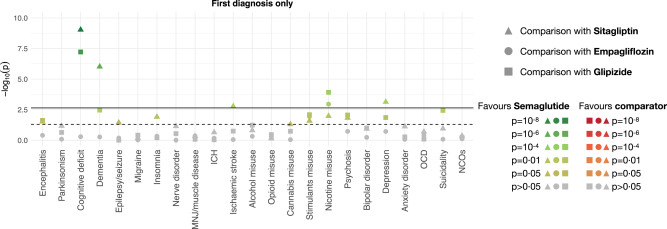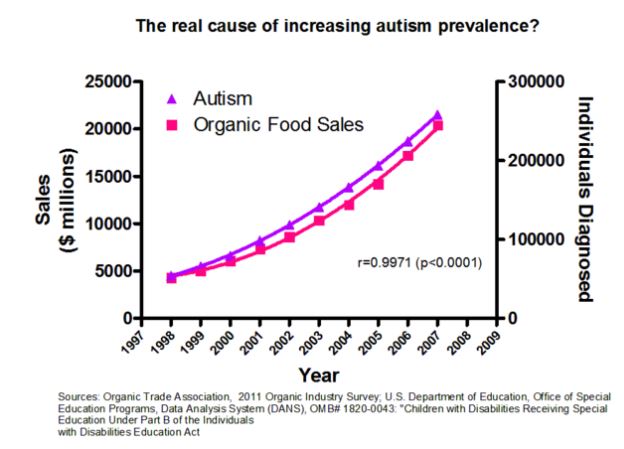Yet the reason so many "studies" by epidemiologists are being pushed onto the public now is because it is a fad. Fads, creating them or capitalizing on them, is big business for lawyers on one side and corporations on the other, and epidemiologists capitalize on that.
Consumers pay the price. A so-called Oxford "study", language designed to convince corporate journalists who don't know any better that it is science, goes a step beyond the usual suspect "suggests" and claims the popular weight loss...sorry "diabetes"...drug Ozempic led To dementia cases prevented.
It's impossible.

With enough time and data, it is entirely possible to show that not doing something can prevent something else, or that doing something will increase real risk. Cigarettes and alcohol are two well-known examples where epidemiologists were able to show real increased risk of cancer. Yet that popularity, and the billions of dollars generated in lawsuits against cigarette companies when it was shown, set off a daisy chain in epidemiology. Now aloe vera and pickle juice are "linked to" cancer. So is hot tea. Weedkillers. Bacon is just as dangerous to eat as plutonium, to food epidemiologists.(1)
This claim is not valid first because it is from just over 3 years' time. If I want to prevent dementia in someone, it needs to have started 20 years ago or it is too ridiculous to argue. It is more likely Ozempic was invoked in dementia for the same reason there are claims it reduces risk of heart disease and gambling addiction. Because it is a fad. Just like when everyone was rushing to publish studies invoking the miracles of red wine and chocolate and the Blood Type Diet and PFAS in the pizza box rather than...the pizza.
The second reason to dismiss it is that without a plausible biological mechanism it is not science, it is just an EXPLORATORY claim. The overwhelming supermajority of type 2 diabetes patients are obese, and obesity is a co-morbidity in even more things than smoking. People who lose weight have lower blood pressure, they have lower everything and therefore lower risk of everything - a magical off-label effect by a popular treatment isn't needed.
When a big pharma fad fixes everything, protect your wallet, and this fad definitely is getting linked to everything. It can even be a "statistically significant" link to lower smoking and vaping.

That the only metric epidemiology needs in the last 15 years is statistical significance, which is not valid and easy to obtain, shows that the entire field has lost its way.
NOTE:
(1) During the COVID-19 pandemic, disease epidemiologists wondered why so few among the public took them seriously. It wasn't because a prominent epidemiologist was saying society needed to be shut down while he was sneaking off to see his married mistress,(1) it was because the public has Correlation Fatigue. There will be 9,000 epidemiology papers published this year. All claim statistical significance. Most of them are instead claiming junk like that virtual pollution causes lower performance in elementary school.
The side effect of this kind of epidemiology paper coming out 200 times per week is that then the public doesn't trust disease epidemiologists either. That is because so few of them stand up to their own militant activists in a war on science inside the epidemiology tribe: the International Agency for Research on Cancer in France, National Institute of Environmental Health Sciences in the USA, and Ramazzini Institute in Italy all seek to undermine scientists while wrapping themselves in the flag of public health.



Comments